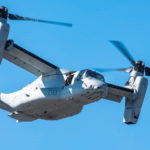JATR panel criticises FAA approval and overview of MCAS anti-stall system on Boeing 737 MAX jet which has been grounded since March
An international panel of air safety regulators has criticised the FAA’s review of an anti-stall system on the Boeing 737 MAX jet which was tied to two crashes killing 346 people.
News agency Reuters has had early access to a report by the Joint Authorities Technical Review (JATR) which was commissioned by the FAA in April. The report investigates the agency’s oversight and approval of the MCAS anti-stall system before the fatal crashes. The JATR is headed up by Christopher Hart, former chairman of the National Transportation Safety Board (NTSB), and includes air-safety regulators from the United States, Canada, China, Indonesia, European Union, Brazil, Australia, Singapore, United Arab Emirates and Japan.
MCAS not evaluated as a complete and integrated function
The JATR’s 69-page document of findings and recommendations said: “The JATR team found that the MCAS was not evaluated as a complete and integrated function in the certification documents that were submitted to the FAA.”
“The lack of a unified top-down development and evaluation of the system function and its safety analyses, combined with the extensive and fragmented documentation, made it difficult to assess whether compliance was fully demonstrated.”
Regulators are continuing to scrutinise proposed software changes and training revisions from Boeing which would eventually result in the resumption of flights. The aircraft has been grounded worldwide since an Ethiopian Airlines 737 MAX crashed in March, killing 157 people, five months after a Lion Air 737 Max crashed in Indonesia, killing 189 people on board.
FAA’s practice of delegation needs reform
Southwest Airlines and American Airlines Inc have pushed back the expected resumption of flights until January. The JATR draft recommendations added that FAA’s long-standing practice of delegating “a high level” of certification tasks to manufacturers like Boeing needed significant reform to ensure adequate safety oversight.
“With adequate FAA engagement and oversight, the extent of delegation does not in itself compromise safety,” the report said. “However, in the B737 MAX program, the FAA had inadequate awareness of the MCAS function which, coupled with limited involvement, resulted in an inability of the FAA to provide an independent assessment of the adequacy of the Boeing-proposed certification activities associated with MCAS.”
The report also questioned FAA’s limited staffing to oversee certification tasks it designated to Boeing and said there were an “inadequate number of FAA specialists” involved in the 737 MAX certification.
Boeing employees faced “undue pressure”
It added there were signs that Boeing employees conducting FAA work faced “undue pressure, which may be attributed to conflicting priorities and an environment that does not support FAA requirements.”
A statement by FAA Administrator Steve Dickson said he would look at the panel’s recommendations and take appropriate action following the “unvarnished and independent review of the certification of the Boeing 737 MAX.”
The Reuters report states that Boeing had no immediate comment ahead of the report’s public release and the planemaker had stopped short of admitting any faults in how it developed the 737 MAX, or MCAS, which had repeatedly pushed the plane’s nose down in both crashes while the pilots struggled to intervene.

